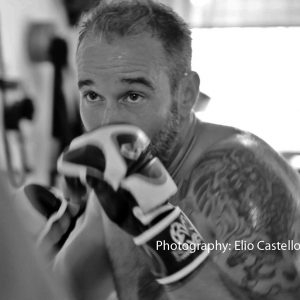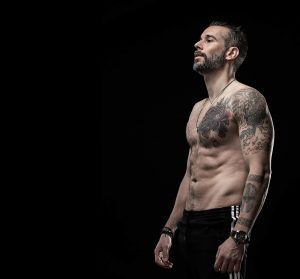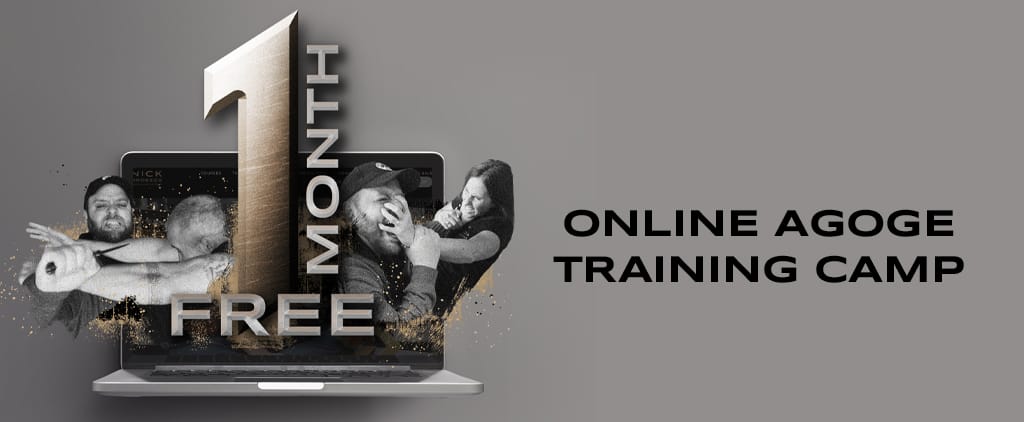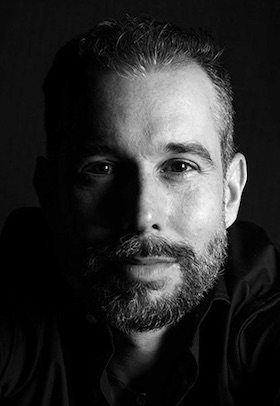“Come on, fight me! Hit me! Let’s see how tough you really are! Do you actually think I am afraid of you?”
She began to push me harder and harder and would not let me leave the room. I am a world-renowned self-defense expert and an influential male figure. Could this be happening to me? The existence of domestic violence is within the paradigm of what I teach. How is this possible? The irony was profound.

According to the National Coalition Against Domestic Violence, 1 in 4 men has experienced violence from an intimate partner, 1 in 7 have endured severe brutality such as burning, beating, or strangulation, and 1 in 13 men are killed by their partners.
I never fathomed that I would publicly divulge this via a personal blog, if ever. Discussing intimate partner violence has implications – especially as a male and a fitness guru synonymous with physical and mental strength. The risk is monumental, as my professional and personal reputation risked scrutiny. The purpose of this confession of sorts is about honoring men’s rights groups and, most critically, acknowledging the domination of male intimate partner violence to empower men, not to stay silent.
It’s my narrative on domestic abuse and gendered violence. Not unlike Johnny Depp, I hope to set a precedence by using my voice to fight back. His trial became my own trial. It was more than a gripping look into the convoluted nature of domestic violence and volatile relationships; it was also personal.

The Male Experience:
It’s imperative to begin by clarifying just what constitutes ways in which men are abused and how they are uniquely affected. Studies reveal emotional abuse is typically a sensitive topic among men. Choice words, such as coward, failure, or impotent, are perfectly selected to penetrate the psyche of men. These cutting words often crush the effects of physical abuse – sabotaging a man’s self-worth. A male will not typically self-identify as a victim, downplaying or repressing their demeaning experience.
Despite societal efforts, gender generalizations are not only alarming, but they are also destructive. They signify that men cannot be the victims of domestic abuse; the idea is often ridiculed or ignored. The ugly truth is male domestic abuse is not taken seriously – and the less we expose it, the less men will reveal it. Justifiably, the narrative hones in on violence against women – more explicit – men abusing women, but simultaneously, there is another harrowing scenario. Enter Johnny Depp.
Sexual and Intimate Partner Violence is a Man’s Issue:
Rape and sexual assault, sexual harassment, street harassment, stalking, domestic and dating violence, sex trafficking, and sexual exploitations have historically been defined and perceived as women’s issues. They have reflected this as we constantly strive for women’s empowerment – justifiably. In creating a dialogue and awareness of male gender-based violence, it is not to diminish the frequency and severity of what women have brutally endured and continue to brave. It’s about identifying domestic violence against men and how to find help.
What Does Domestic Violence Look like?
You may be experiencing domestic violence if your partner does the following:
- Calls you names, insults you, or puts you down
- Prevents you from going to work or school
- Stops you from seeing family members or friends
- Tries to control how you spend money, where you go or what you wear
- Acts jealous or possessive or constantly accuses you of being unfaithful
- Gets angry when drinking alcohol or using drugs
- Tries to control whether you can see a health care provider
- Threatens you with violence or a weapon
- Hits, kicks, shoves, slaps, chokes, or otherwise hurts you, your children, or your pets
- Forces you to have sex or engage in sexual acts against your will
- Blames you for their violent behavior or tells you that you deserve it
- Threatens to tell friends, family, colleagues, or community members your sexual orientation or gender identity
It’s Not Your Fault:
The confusion is real. It’s natural to question whether you are the victim or abuser; it’s a perverse trap. After all, it’s prevalent that survivors of domestic violence catapult by acting out verbally or physically by the abuser, yelling, pushing, and hitting during conflict. More deplorable, your abuser may use such incidents to undermine and manipulate you by creating an account that portrays you as the abusive partner.
I distinctly recall a verbal altercation erupting in our bedroom, which I attempted to diffuse and walk away from. My girlfriend closed the door and wouldn’t let me leave. She began insulting and challenging me to fight her, pushing me, shoving me, and asking me to hit her. I immediately understood this was a trap.
Why Men Don’t Leave:
Ending an abusive relationship is both complex and delicate regardless of gender. It’s even more of a formidable execution if you have been threatened, manipulated, controlled, or emotionally and physically conquered, even isolated from friends and family. I understand this because it’s precisely why I didn’t leave. My partner developed coercive schemes to dominate me and brutally attack my character if I even considered escaping her vicious grip. Additionally, she dangled her power to destroy my professional notoriety. This dynamic life I shaped for myself made me a soft target in her eyes. It was disturbing and alarming. From a self-defense angle, it was dire.
I Am A Male Survivor:
Today, I share my life with a partner who epitomizes respect and kindness – for herself- and instinctively for others. It’s indicative of what is truly healthy and fulfilling in a relationship and life. As a self-defense coach and mentor, it was an invaluable experience that taught me how to better deal with domestic violence and truly empathize with all the complexities of being in a toxic and dangerous relationship – for males and females.

That said, I hope to isolate the men for this blog’s purpose. Not because the abuse they experience is more paramount, but to introduce to the world that domestic violence also occurs to men.
According to the National Violence Against Women Survey. More than 830,000 men fall victim to domestic violence every year, which means every 37.8 seconds, somewhere in America a man is battered. According to the Domestic Abuse Helpline for Men, men often worry, “What will people think if they knew I let a woman beat up on me?” and “I don’t want to be laughed at; no one would believe me.”
People who have been battered or emotionally abused are depressed, drained, scared, ashamed, and confused. I was no exception. But I also knew that in order to honour myself, it would require grit. That intrinsic power I have spent my life discovering and training to master. A term that I allow to define me in a healthy way, in a safe way, yet still in a very dynamic way.

Sure, Johnny Depp may have inspired my movement along with millions of men globally, being exalted as a ‘men’s rights hero’, but ultimately, I had to earn this title for myself. Power is not exclusive to men; synonymous with fame, power, and success, we all have it in us to openly declare ourselves as victims of domestic abuse – to unsilence our silence.
Teaching prevention, detection, and ultimately setting up for the initial strike to be one step ahead of the attacker, will always be in hardcore demand. My Knife Defense, Hero Program, Hero Training Camp, Bob Dummy F.I.I.T, Women’s Shield Program, Bully-Proof, and Larger Attacker Defence are dynamic systems indicative of real-world self-defence to sustain personal protection. Which one will empower you?


